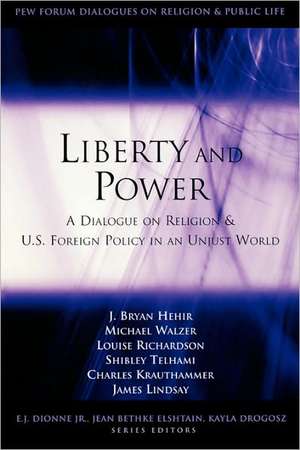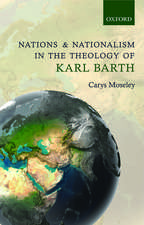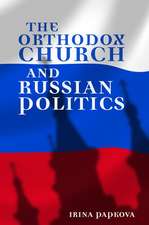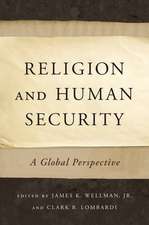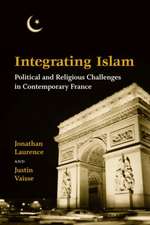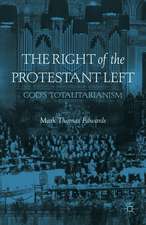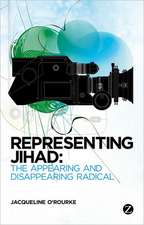Liberty and Power: A Dialogue on Religion and U.S. Foreign Policy in an Unjust World: Pew Forum Dialogue Series on Religion and Public Life
Autor J. Bryan Hehir, Michael Walzer, Louise Richardson, Shibley Telham, Charles Krauthammeren Limba Engleză Paperback – 23 sep 2004
What role should religion play in shaping and implementing U.S. foreign policy?
The dominant attitude over the last half century on the subject of religion and international relations was expressed well by Dean Acheson, Harry Truman's secretary of state: "Moral Talk was fine preaching for the Final Day of Judgment, but it was not a view I would entertain as a public servant." Was Acheson right? How a nation "commits itself to freedom" has long been at the heart of debates about foreign aid, economic sanctions, and military intervention. Moral and faith traditions have much to say about what is required to achieve this end. And after September 11, no one can doubt the importance of religious beliefs in influencing relations among peoples and nations. The contributors to this volume come at the issue from very different perspectives and offer exceptional and unexpected insights on a question now at the forefront of American foreign policy.
The dominant attitude over the last half century on the subject of religion and international relations was expressed well by Dean Acheson, Harry Truman's secretary of state: "Moral Talk was fine preaching for the Final Day of Judgment, but it was not a view I would entertain as a public servant." Was Acheson right? How a nation "commits itself to freedom" has long been at the heart of debates about foreign aid, economic sanctions, and military intervention. Moral and faith traditions have much to say about what is required to achieve this end. And after September 11, no one can doubt the importance of religious beliefs in influencing relations among peoples and nations. The contributors to this volume come at the issue from very different perspectives and offer exceptional and unexpected insights on a question now at the forefront of American foreign policy.
Preț: 179.52 lei
Nou
Puncte Express: 269
Preț estimativ în valută:
34.35€ • 35.96$ • 28.42£
34.35€ • 35.96$ • 28.42£
Carte tipărită la comandă
Livrare economică 05-19 aprilie
Preluare comenzi: 021 569.72.76
Specificații
ISBN-13: 9780815735458
ISBN-10: 0815735456
Pagini: 136
Ilustrații: black & white illustrations
Dimensiuni: 152 x 229 x 10 mm
Greutate: 0.23 kg
Editura: Brookings Institution Press
Colecția Brookings Institution Press
Seria Pew Forum Dialogue Series on Religion and Public Life
Locul publicării:United States
ISBN-10: 0815735456
Pagini: 136
Ilustrații: black & white illustrations
Dimensiuni: 152 x 229 x 10 mm
Greutate: 0.23 kg
Editura: Brookings Institution Press
Colecția Brookings Institution Press
Seria Pew Forum Dialogue Series on Religion and Public Life
Locul publicării:United States
Notă biografică
J. Bryan Hehir is the Parker Gilbert Montgomery Professor of the Practice of Religion and Public Life at Harvard's Kennedy School of Government and was formerly the president and CEO of Catholic Charities U.S.A. Michael Walzer is a leading American political theorist and a professor of social science at the Institute for Advanced Study in Princeton, N.J. He is the author of several books, including Just and Unjust Wars. Louise Richardson serves as the executive dean of the Radcliffe Institute for Advanced Study at Harvard University and is an expert in international terrorism and defense policy. Shibley Telhami is Anwar Sadat Professor for Peace and Development at the University of Maryland and a non-resident senior fellow at the Saban Center for Middle East Policy at the Brookings Institution. He is the author of numerous books, including the national bestseller The Stakes (Westview). Charles Krauthammer is a Pulitzer Prize-winning syndicated columnist at the Washington Post. He contributes frequently to Time Magazine, The Weekly Standard, The New Republic, and The National Interest. James M. Lindsay is vice president and director of studies of the Council on Foreign Relations, where he holds the Maurice R. Greenberg Chair. He was previously deputy director and senior fellow in Foreign Policy Studies at the Brookings Institution. His books include Agenda for the Nation (Brookings 2003) and Defending America: The Case for Limited National Missile Defense (Brookings 2001). In 1996-97, Lindsay was director for global issues and multilateral affairs on the National Security Council staff.
Descriere
What role should religion play in shaping and implementing U.S. foreign policy?
The dominant attitude over the last half century on the subject of religion and international relations was expressed well by Dean Acheson, Harry Truman's secretary of state: "Moral Talk was fine preaching for the Final Day of Judgment, but it was not a view I would entertain as a public servant." Was Acheson right? How a nation "commits itself to freedom" has long been at the heart of debates about foreign aid, economic sanctions, and military intervention. Moral and faith traditions have much to say about what is required to achieve this end. And after September 11, no one can doubt the importance of religious beliefs in influencing relations among peoples and nations. The contributors to this volume come at the issue from very different perspectives and offer exceptional and unexpected insights on a question now at the forefront of American foreign policy.
The dominant attitude over the last half century on the subject of religion and international relations was expressed well by Dean Acheson, Harry Truman's secretary of state: "Moral Talk was fine preaching for the Final Day of Judgment, but it was not a view I would entertain as a public servant." Was Acheson right? How a nation "commits itself to freedom" has long been at the heart of debates about foreign aid, economic sanctions, and military intervention. Moral and faith traditions have much to say about what is required to achieve this end. And after September 11, no one can doubt the importance of religious beliefs in influencing relations among peoples and nations. The contributors to this volume come at the issue from very different perspectives and offer exceptional and unexpected insights on a question now at the forefront of American foreign policy.
